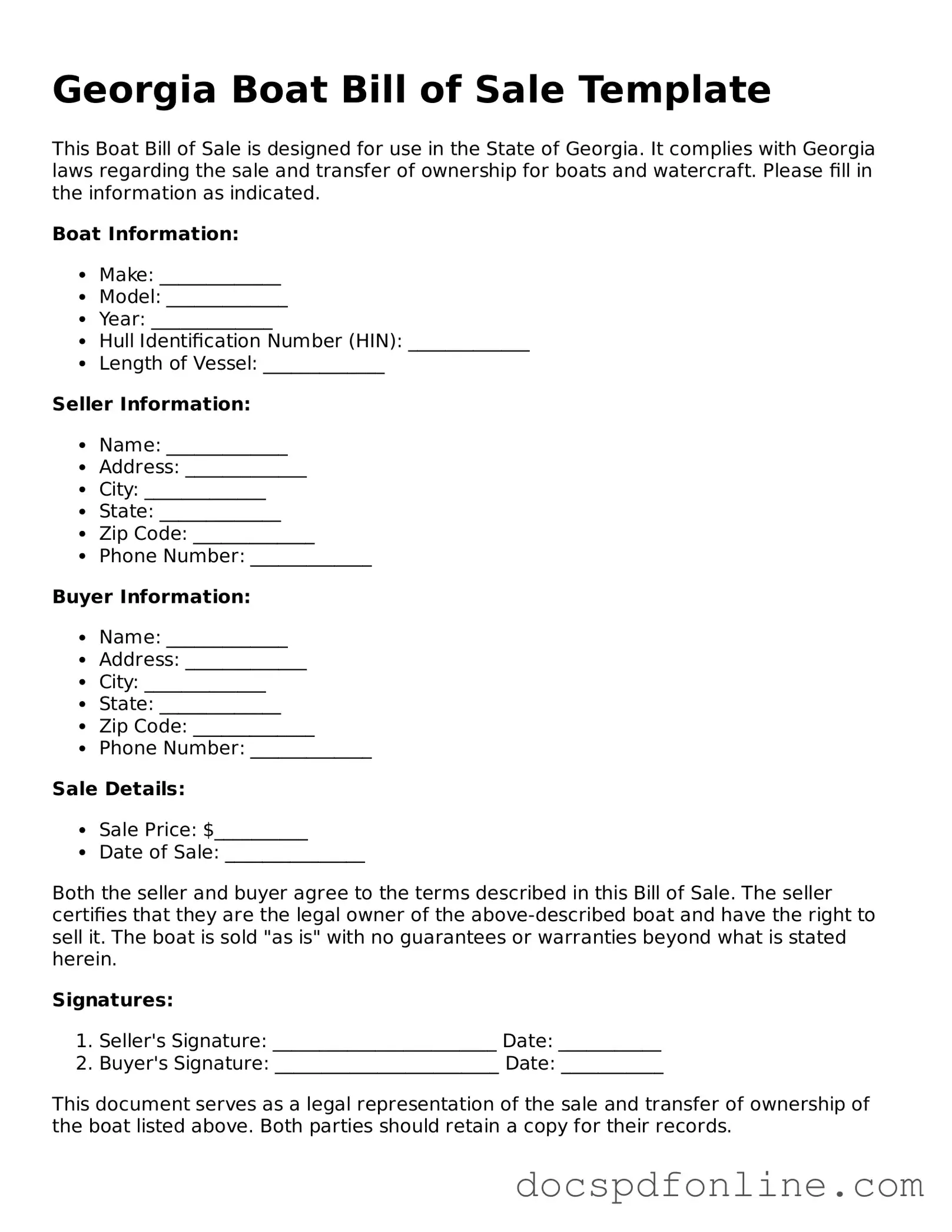Legal Boat Bill of Sale Template for Georgia
The Georgia Boat Bill of Sale form is a legal document that records the transfer of ownership of a boat from one party to another. This form is essential for both buyers and sellers, as it provides proof of the transaction and protects the interests of both parties. Understanding its components and requirements can simplify the buying or selling process significantly.
Launch Editor Now

Legal Boat Bill of Sale Template for Georgia
Launch Editor Now
Save time — finish this form fast
Finish Boat Bill of Sale online — edit, save, download made easy.
Launch Editor Now
or
↓ PDF File
